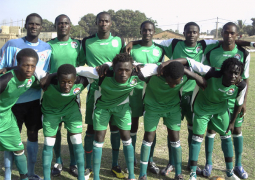It was held at the Governor’s office conference hall, and funded by the European Union.
Speaking at the ceremony, the Governor West Coast Region, Aminata Sifai Hydara, highlighted the importance of the sensitization exercise, and urged participants to fully participate in order to understand the targeting mechanisms.
Hudul Colley of the NDMA said The Gambia is prone to different types of natural hazards, and has experienced several major disasters in the recent past.
He added that the training activity would help participants understand the different methods of targeting beneficiaries, and enable them know each strategy, as well as learn how to combine them to adjust to the aims and objectives of the intervention.
The World Food Programme DRR coordinator, Essa Khan, underscored the importance of the sensitization sessions, explaining that the aim is to build the capacity and resilience of participants in the West Coast Region, so as to enable them conduct proper and detailed assessments.
He added that targeting is necessary to ensure the best use of limited resources.
WFP assistant Nuha Nyassi said targeting is defined as directing a particular type or quantity of assistance to a defined population group, to ensure assistance is received based on need.
It is an essential pillar in humanitarian interventions, in a bid to obtain meaningful impact on the livelihood of the most vulnerable people in communities, he added.
Nyassi urged stakeholders to be careful of the exclusion and inclusion errors during humanitarian interventions, in ensuring the efficient and effective use of resources.
He explained that targeting could reduce the quantity of food supplied, and reduces the risk of depressing producer prices and production, disrupting trade, or displacing traditional social reciprocity networks.
The West Coast Regional coordinator, Binta Sey Jadama, urged participants to make best use of the knowledge gained and work together as a team in the best interest of the people they are serving.


